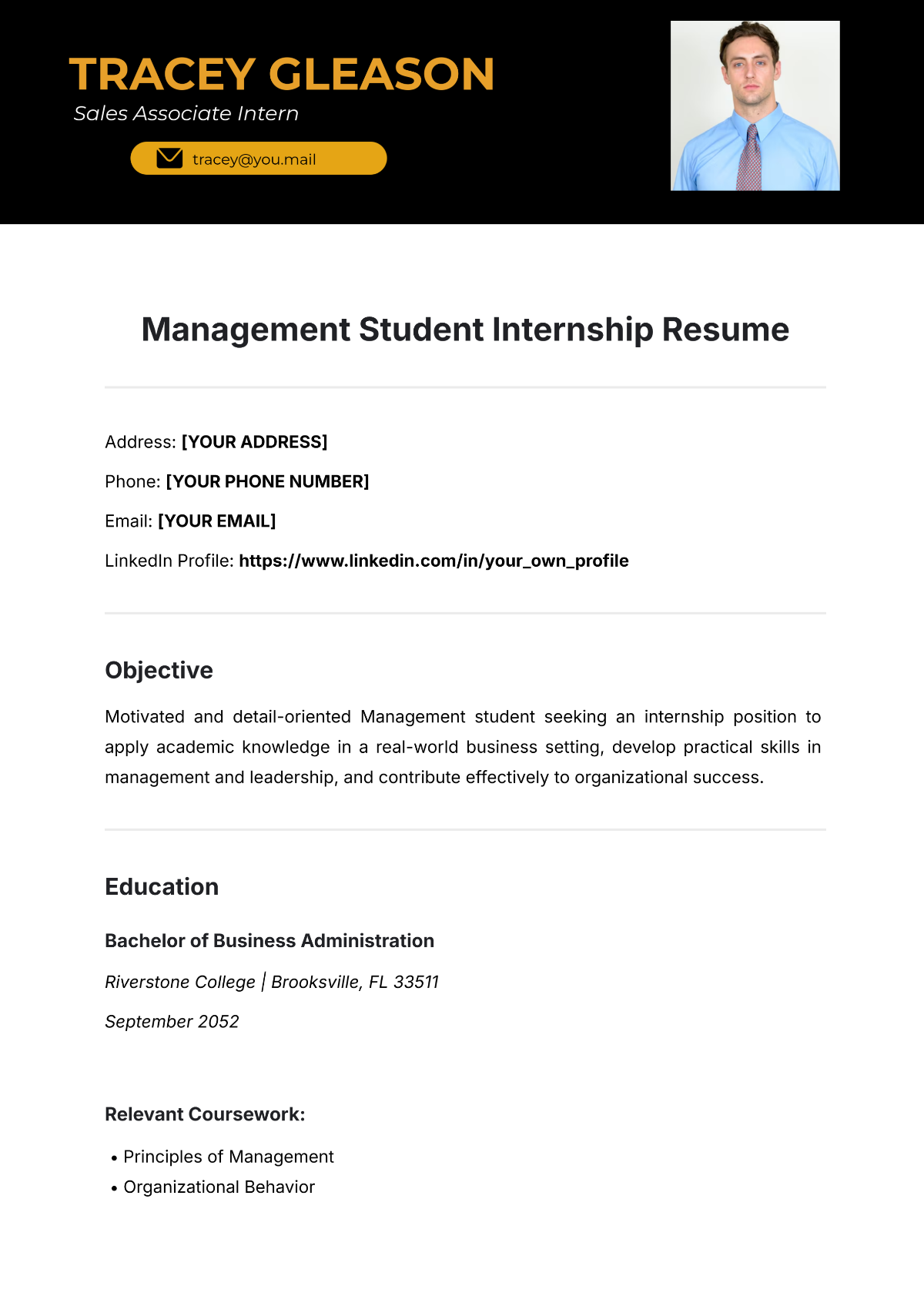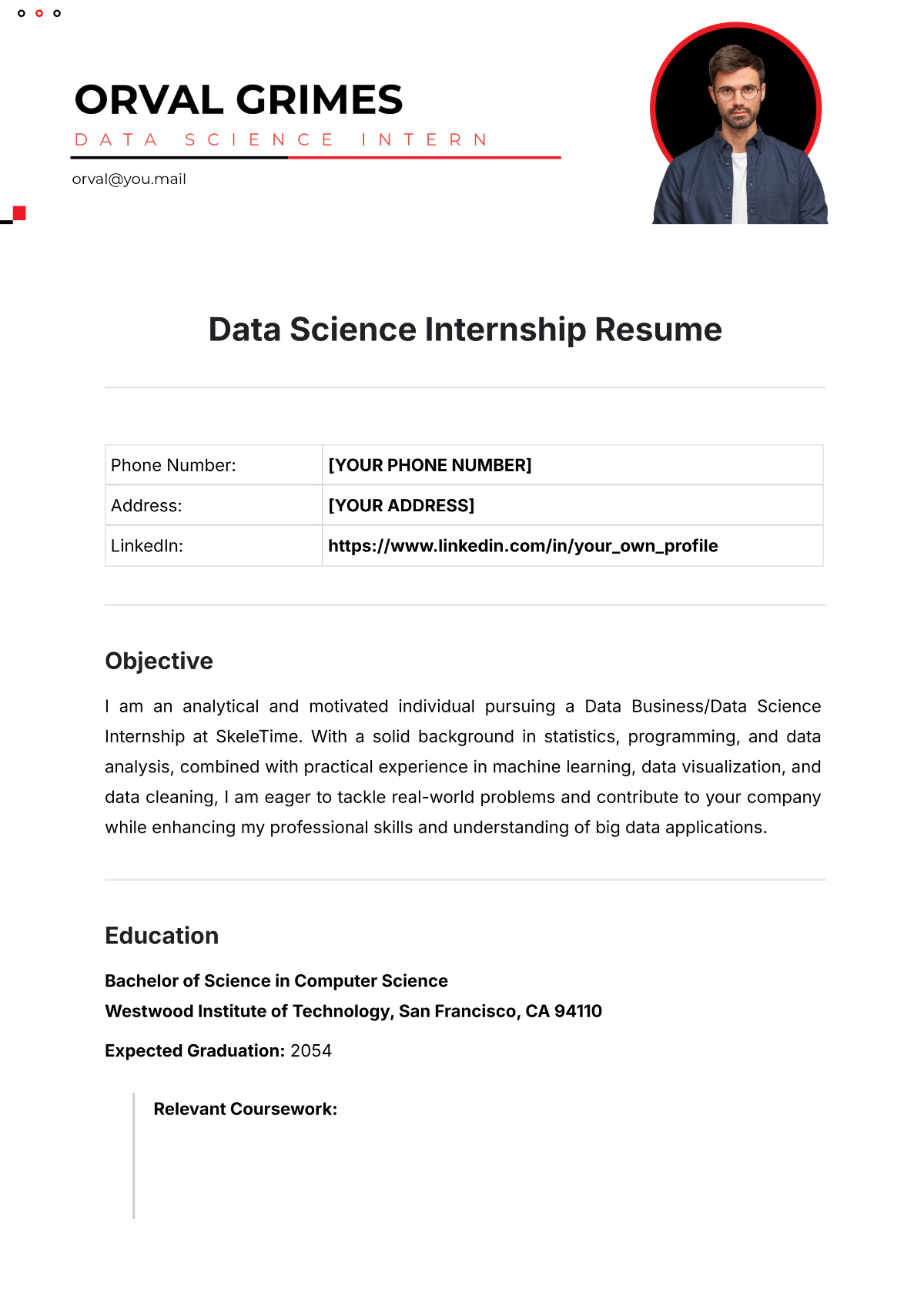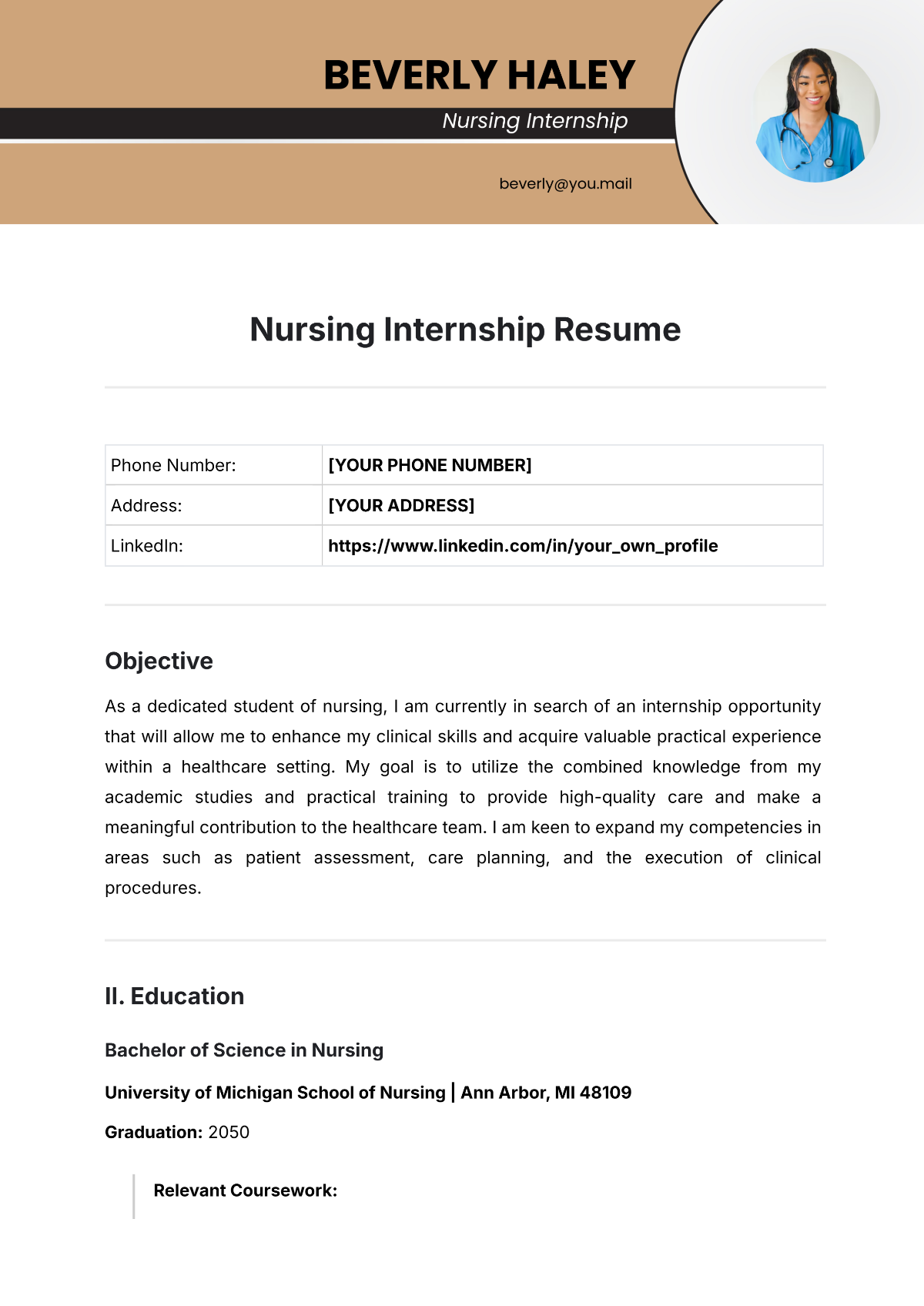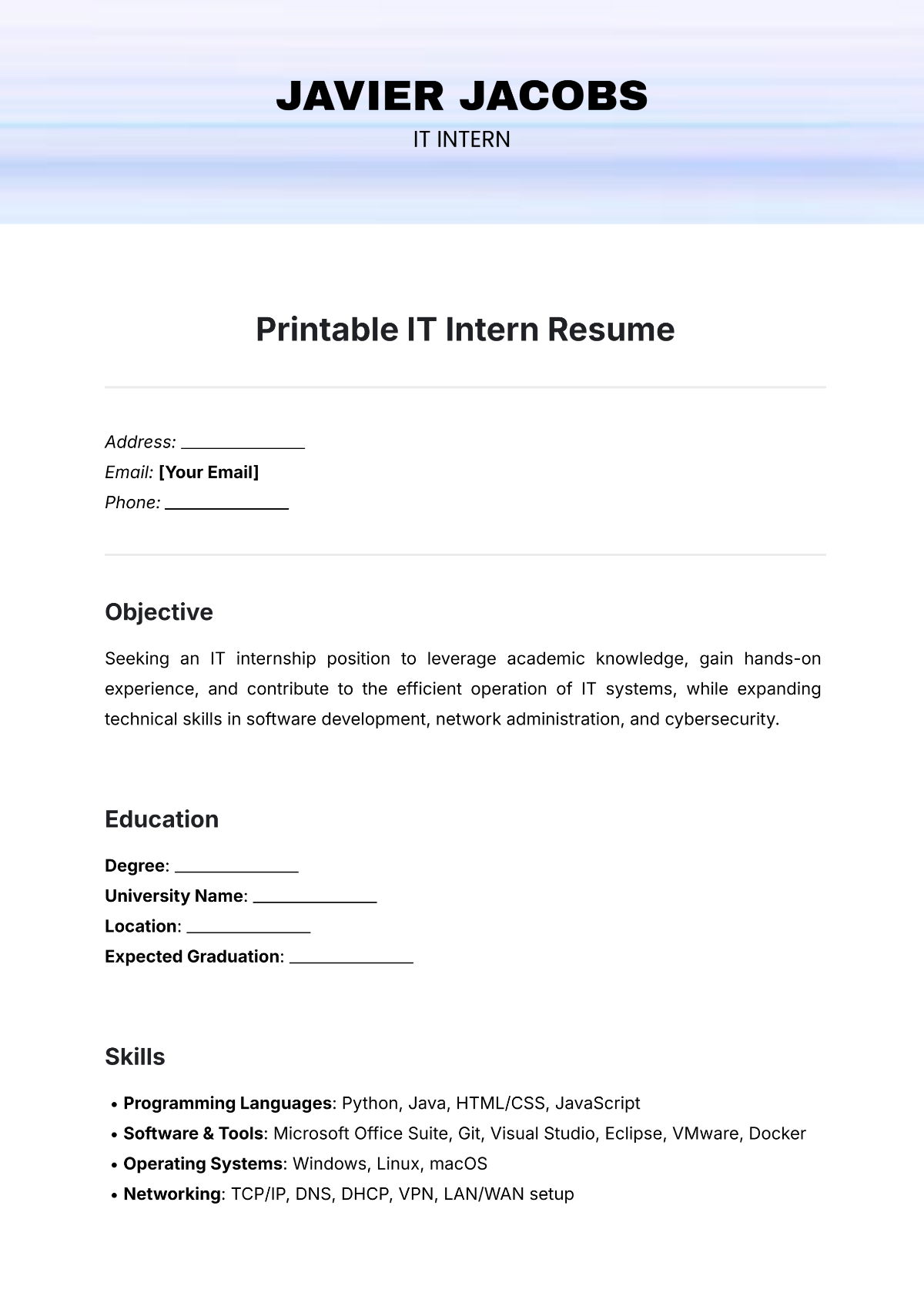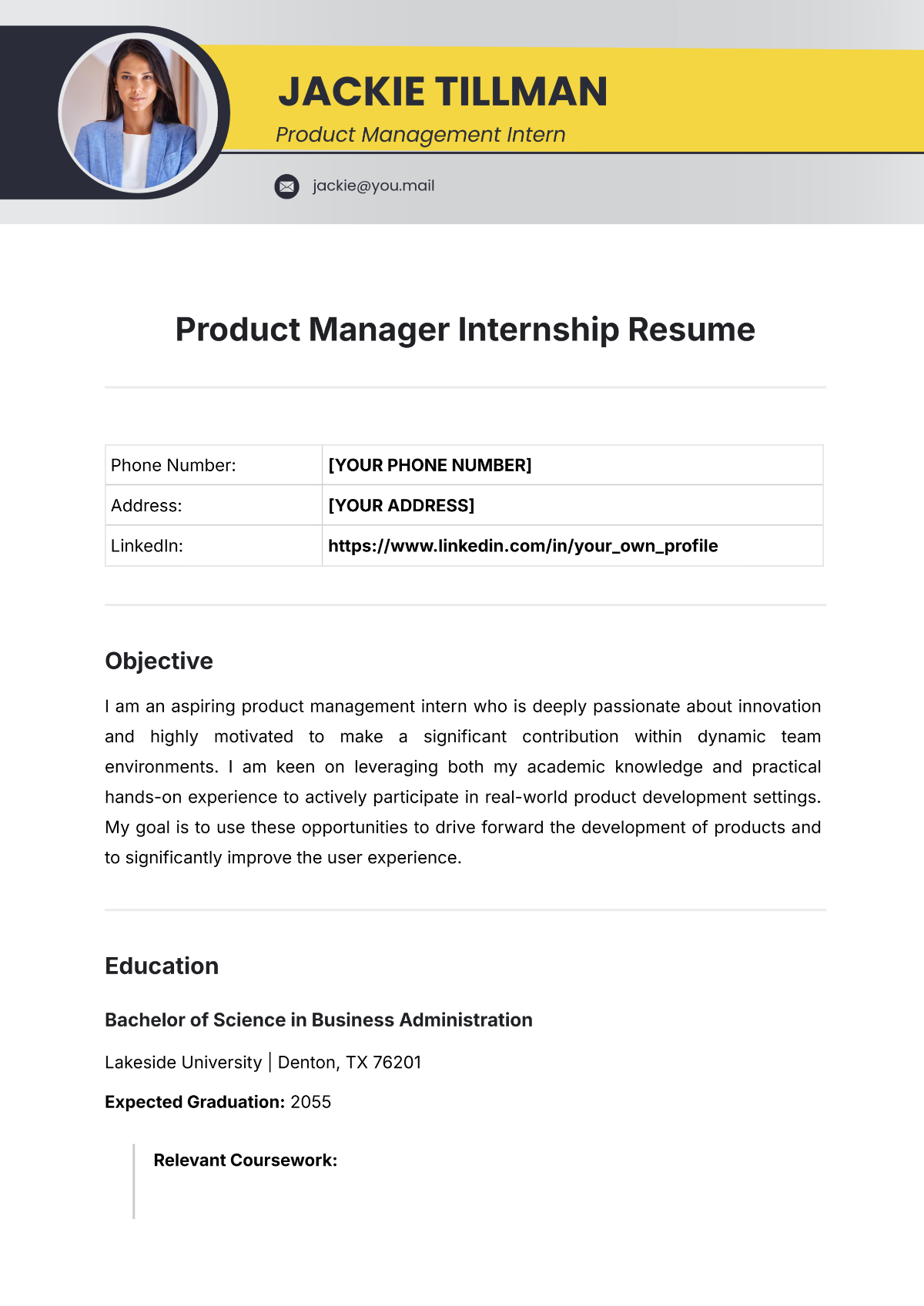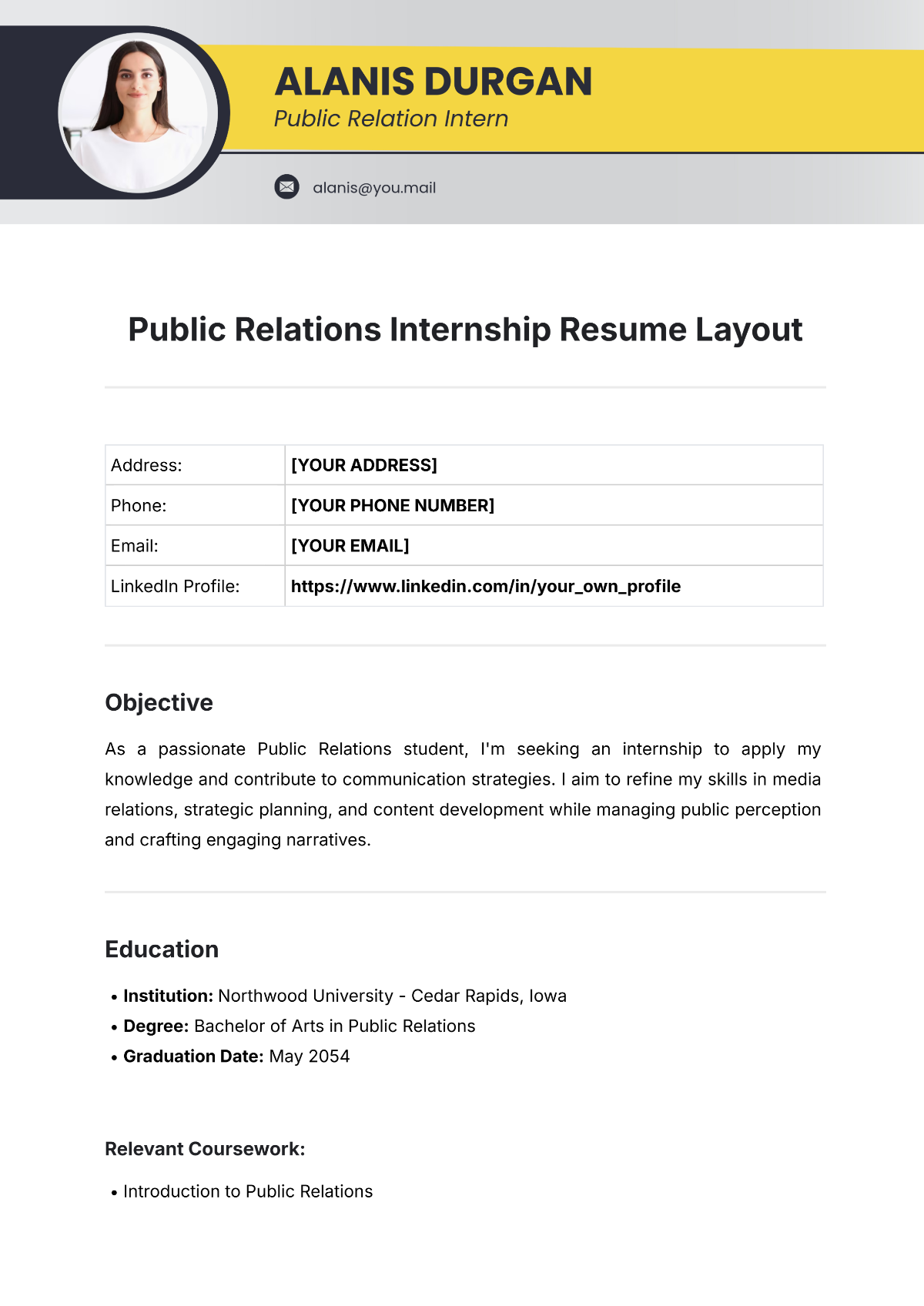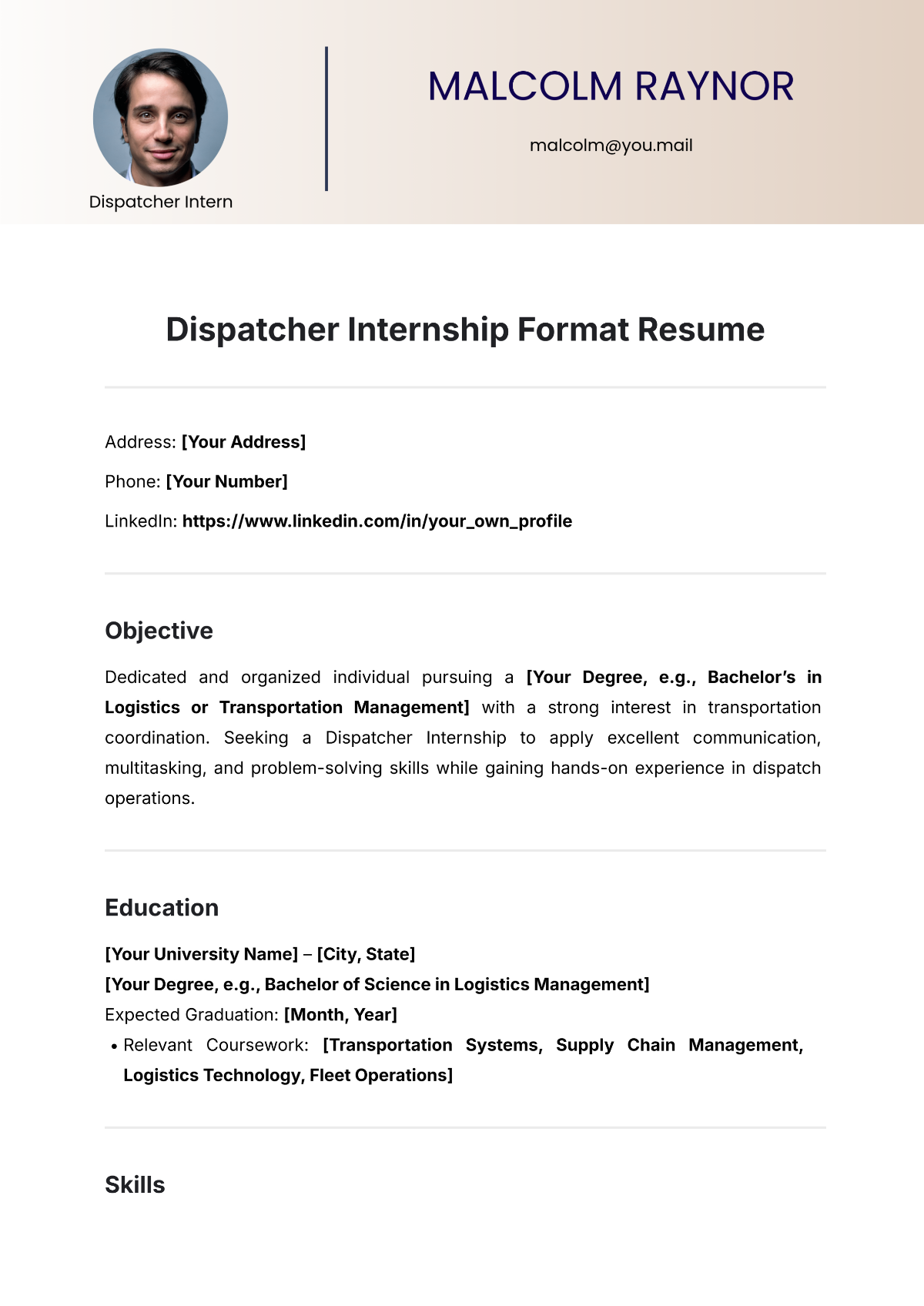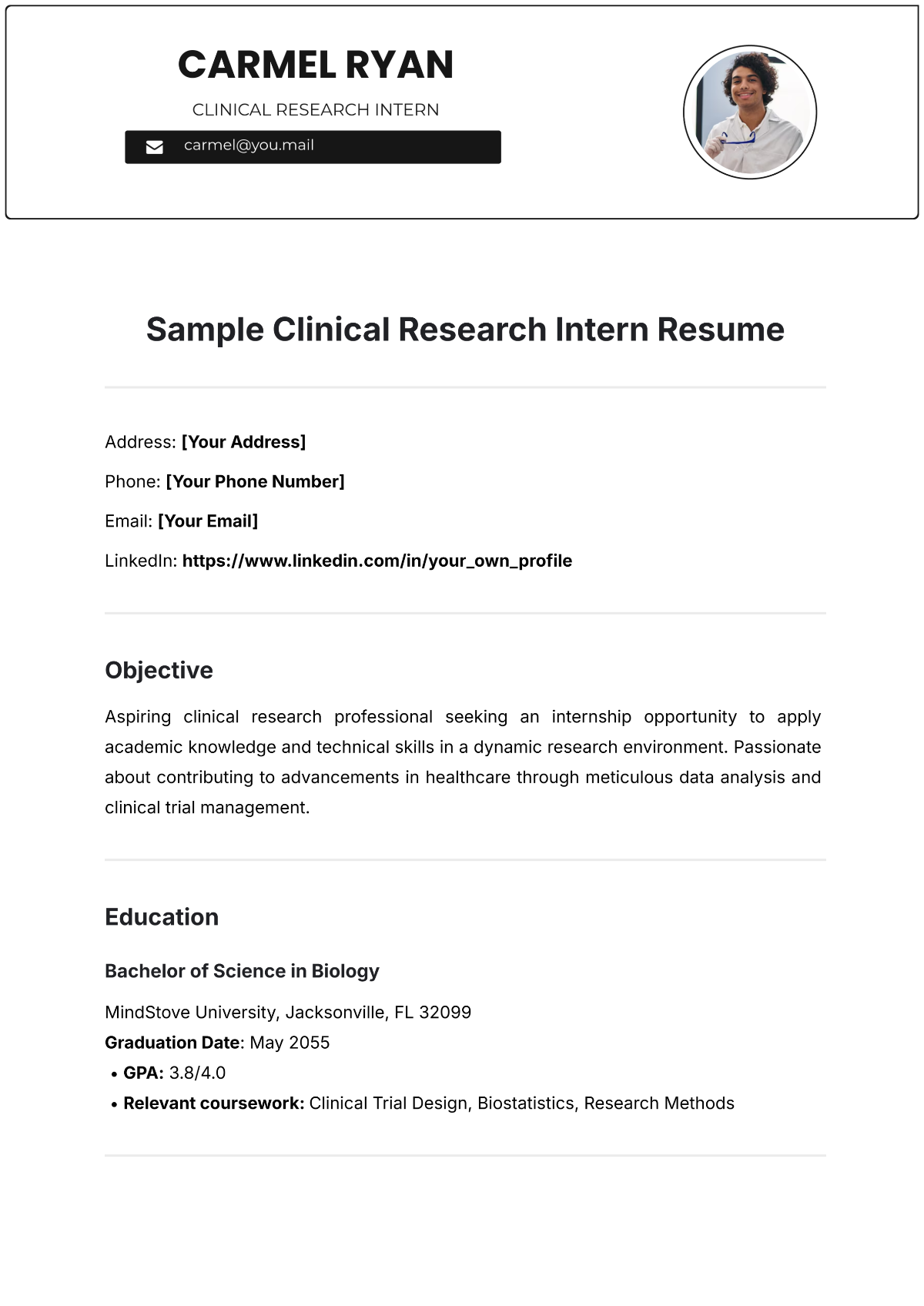Cyber Security Internship Resume
Phone Number: | [YOUR PHONE NUMBER] |
Address: | [YOUR ADDRESS] |
LinkedIn: | https://www.linkedin.com/in/your_own_profile |
I. Objective
As a dedicated and technically skilled cybersecurity student, I am seeking an internship opportunity at [Your Company Name] to leverage my knowledge of network security, ethical hacking, and information protection. I am eager to contribute to [Your Company Name] efforts in safeguarding critical information systems while gaining practical experience and advancing my career in cyber security.
II. Education
Bachelor of Science in Cyber Security
[UNIVERSITY NAME], [LOCATION]
Expected Graduation: [Year]
Relevant Coursework:
Network Security: Studied methods for securing network infrastructures and managing network security.
Ethical Hacking: Gained hands-on experience in penetration testing and vulnerability assessment.
Cryptography: Learned about encryption algorithms and techniques for securing communication.
Information Assurance: Focused on strategies for ensuring data integrity, confidentiality, and availability.
Cyber Security Fundamentals: Covered the basics of cyber security principles, threats, and defense mechanisms.
III. Qualifications
In-depth understanding of cyber security principles and protocols: Strong foundational knowledge in various aspects of cyber security, including threat analysis and mitigation techniques.
Hands-on experience with industry-standard security tools and technologies: Proficient in using tools such as Wireshark for network analysis, Nmap for network scanning, and Metasploit for penetration testing.
Strong analytical skills and problem-solving capabilities: Demonstrated ability to analyze complex security issues and develop effective solutions.
Effective communicator with a collaborative approach to teamwork: Excellent written and verbal communication skills, with a track record of working effectively in team environments.
IV. Skills
A. Technical Skills:
Programming Languages: Proficient in Python, Java, and C++, with experience in writing scripts and developing security tools.
Security Tools: Skilled in using Wireshark for network protocol analysis, Nmap for network discovery and security auditing, and Metasploit for conducting penetration tests.
Operating Systems: Experienced in both Windows and Linux environments, with a focus on system security configurations and administration.
Network Protocols: Knowledgeable in network protocols such as TCP/IP, HTTP, and DNS, with an understanding of how to secure network communications.
B. Soft Skills:
Analytical thinking and problem-solving: Ability to approach complex security problems methodically and develop innovative solutions.
Strong communication and collaboration: Effective at conveying technical information to non-technical stakeholders and working collaboratively in diverse teams.
High attention to detail and precision: Meticulous in analyzing security issues and ensuring the accuracy of security measures implemented.
V. Teaching Experience
Cyber Security Teaching Assistant
[Month], [Year] – Present
Assisted professors in teaching undergraduate courses in Network Security and Ethical Hacking, helping students understand complex security concepts.
Led lab sessions where students gained hands-on experience with security tools and techniques, providing guidance and support to enhance their learning.
Evaluated and graded assignments and exams, offering constructive feedback to help students improve their understanding and performance in cybersecurity topics.
VI. Extracurricular Activities
President, Cyber Security Club
[Month], [Year]
Organized and facilitated workshops on the latest trends and developments in cyber security, helping club members stay updated on industry advancements.
Coordinated team participation in national and international cyber security competitions, leading to several top placements and awards.
Conducted peer learning sessions and hackathons, fostering a collaborative learning environment and encouraging the practical application of cybersecurity skills.
VII. Certifications
CompTIA Security+: Covers basics of network security and risk management.
Certified Ethical Hacker (CEH): Validates skills in finding system vulnerabilities.
Cisco Certified Network Associate (CCNA) Security: Demonstrates knowledge in securing Cisco networks and understanding core security concepts.


